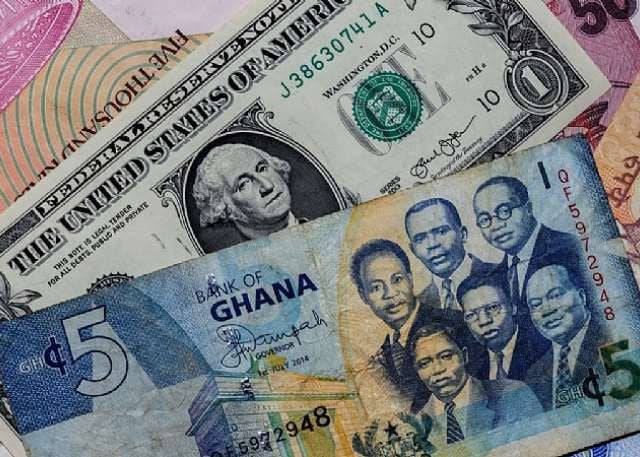Ghanaian Cedi Appreciates Against US Dollar
The Ghanaian cedi experienced a slight appreciation against the US dollar on Thursday, July 31, 2025. According to Cedirates.com, a platform tracking currency and fuel rates in Ghana, the average buying rate for the US dollar stood at GHS10.52, while the selling rate was GHS11.03. This indicates a strengthening of the cedi compared to previous periods. At forex bureaus, the cedi traded at GHS11.80 for dollar purchases and GHS12.10 for dollar sales, reflecting a slightly higher exchange rate in these over-the-counter transactions compared to the interbank market.
The Bank of Ghana’s interbank market, where banks trade currencies among themselves, saw the cedi perform even better. The buying rate on the interbank market was GHS10.49, while the selling rate was GHS10.51. This difference in rates between the interbank market and forex bureaus is common, with forex bureaus typically incorporating their operational costs and profit margins into their exchange rates. The interbank market, being a wholesale market, tends to have narrower spreads. The overall trend, however, pointed to a positive movement for the cedi against the US dollar.
Cedi’s Performance Against Other Major Currencies
The cedi also showed relatively stable performance against other major international currencies. Against the British pound, the average bureau rate was GHS13.86 for buying and GHS14.69 for selling. The Bank of Ghana’s interbank rate for the pound was GHS13.95, slightly higher than the buying rate at forex bureaus but lower than the selling rate. For the euro, forex bureaus offered an average buying rate of GHS12.01 and a selling rate of GHS12.71. The Bank of Ghana’s interbank rate for the euro was GHS12.05, closely aligned with the buying rate offered at forex bureaus.
Remittance and Digital Subscription Rates
Money transfer operators LemFi and Afriex offered competitive rates for remittances from the US or UK to Ghana. For US dollar remittances, LemFi offered a rate of GHS10.45, while Afriex offered a slightly more favorable rate of GHS10.44. For British pound remittances, both LemFi and Afriex offered the same rate of GHS13.93. Regarding euro remittances, Afriex quoted GHS12.08, while LemFi offered GHS12.04. These rates are generally competitive with the interbank and forex bureau rates, providing attractive options for individuals sending money to Ghana.
For digital subscriptions like Netflix, Spotify, and Apple Music paid via Visa and Mastercard, the exchange rate was GHS11.29 for both card networks. This rate falls between the interbank and forex bureau rates for the US dollar, indicating a relatively standard charge for international digital transactions. The use of a consistent rate for both Visa and Mastercard simplifies the payment process for consumers and ensures transparency in the charges applied.
Analysis and Implications of the Cedi’s Performance
The appreciation of the cedi against the US dollar is a positive development for the Ghanaian economy. A stronger cedi can help to reduce the cost of imported goods and services, which can contribute to lower inflation. It also makes Ghanaian exports more competitive in international markets, potentially boosting economic growth. The stability observed against the British pound and the euro further reinforces the positive outlook for the cedi and indicates a relatively stable foreign exchange market.
The competitive rates offered by money transfer operators highlight the importance of remittances to the Ghanaian economy. Remittances represent a significant source of foreign exchange and contribute to household incomes and overall economic activity. The availability of favorable exchange rates encourages the flow of remittances through formal channels, benefiting both senders and recipients. The rates offered for digital subscriptions, while slightly higher than the interbank rate, reflect the convenience and accessibility of international online services. The consistent rates across different card networks ensure transparency and predictability for consumers.
The overall picture presented by the currency rates on July 31, 2025, suggests a positive trajectory for the Ghanaian cedi and a relatively stable foreign exchange market. The appreciation against the US dollar, combined with stable rates against other major currencies and competitive remittance rates, creates a favorable environment for economic activity and international transactions. Continued monitoring of these rates and underlying economic factors will be crucial for maintaining stability and promoting further growth.














